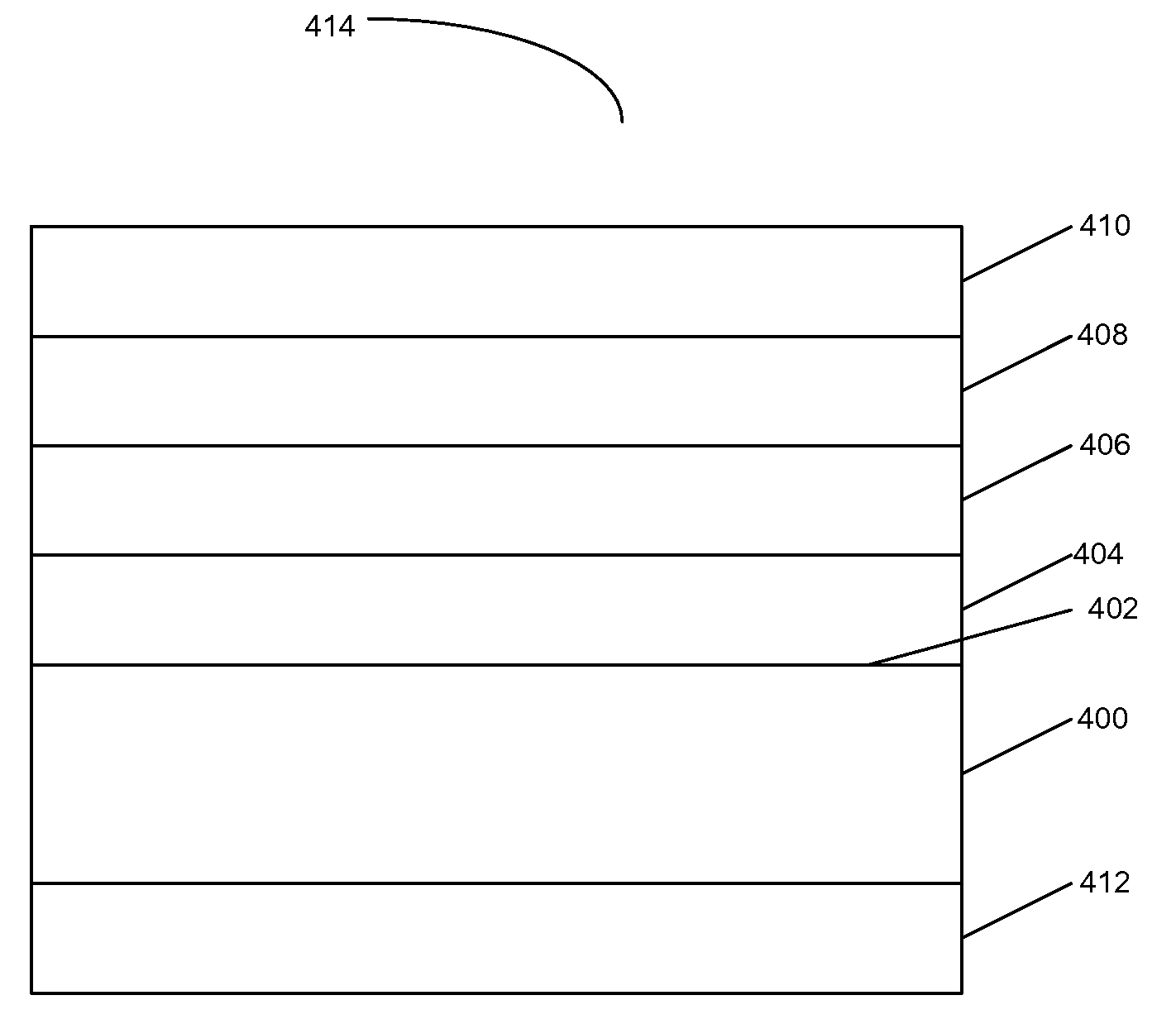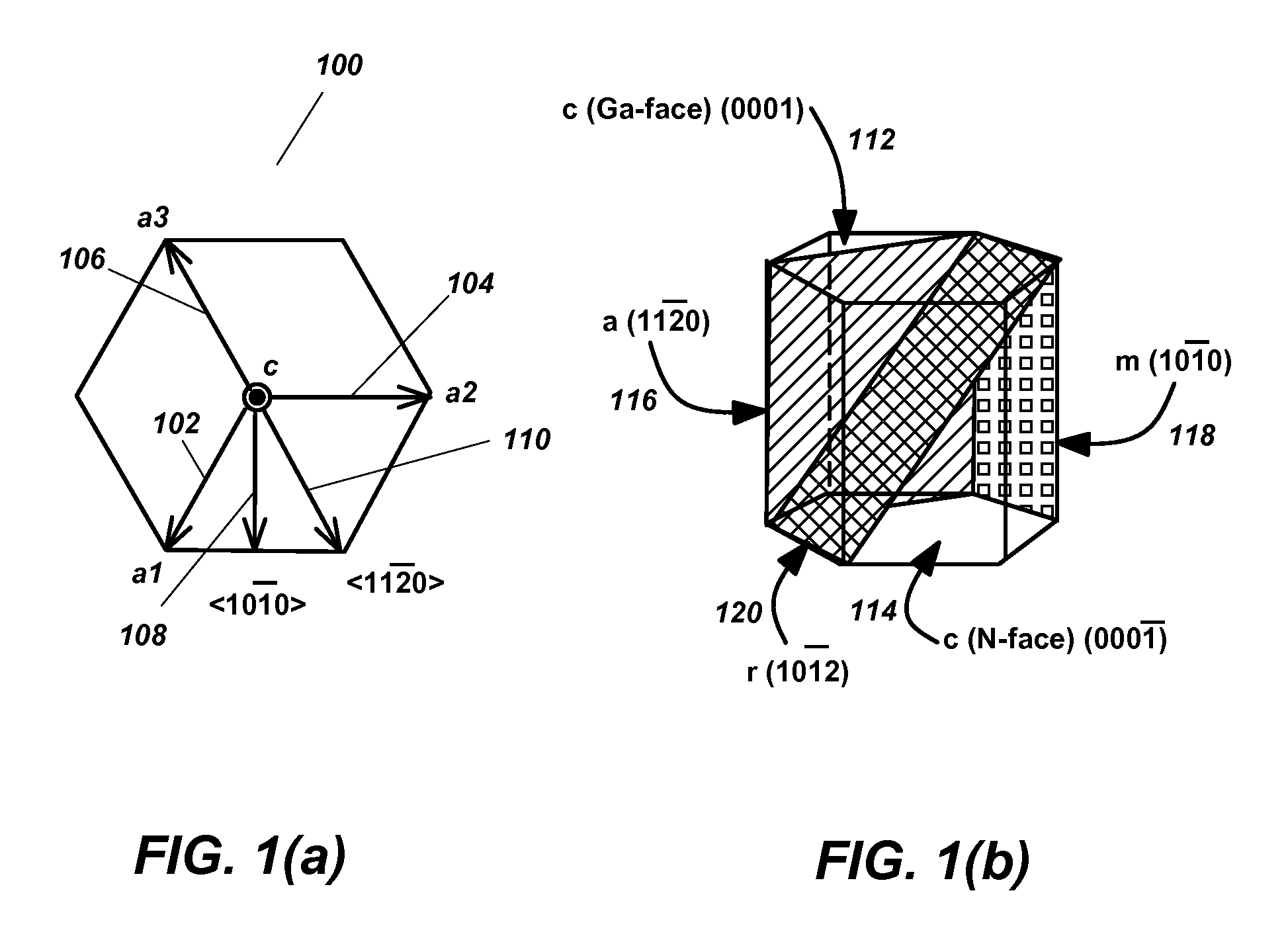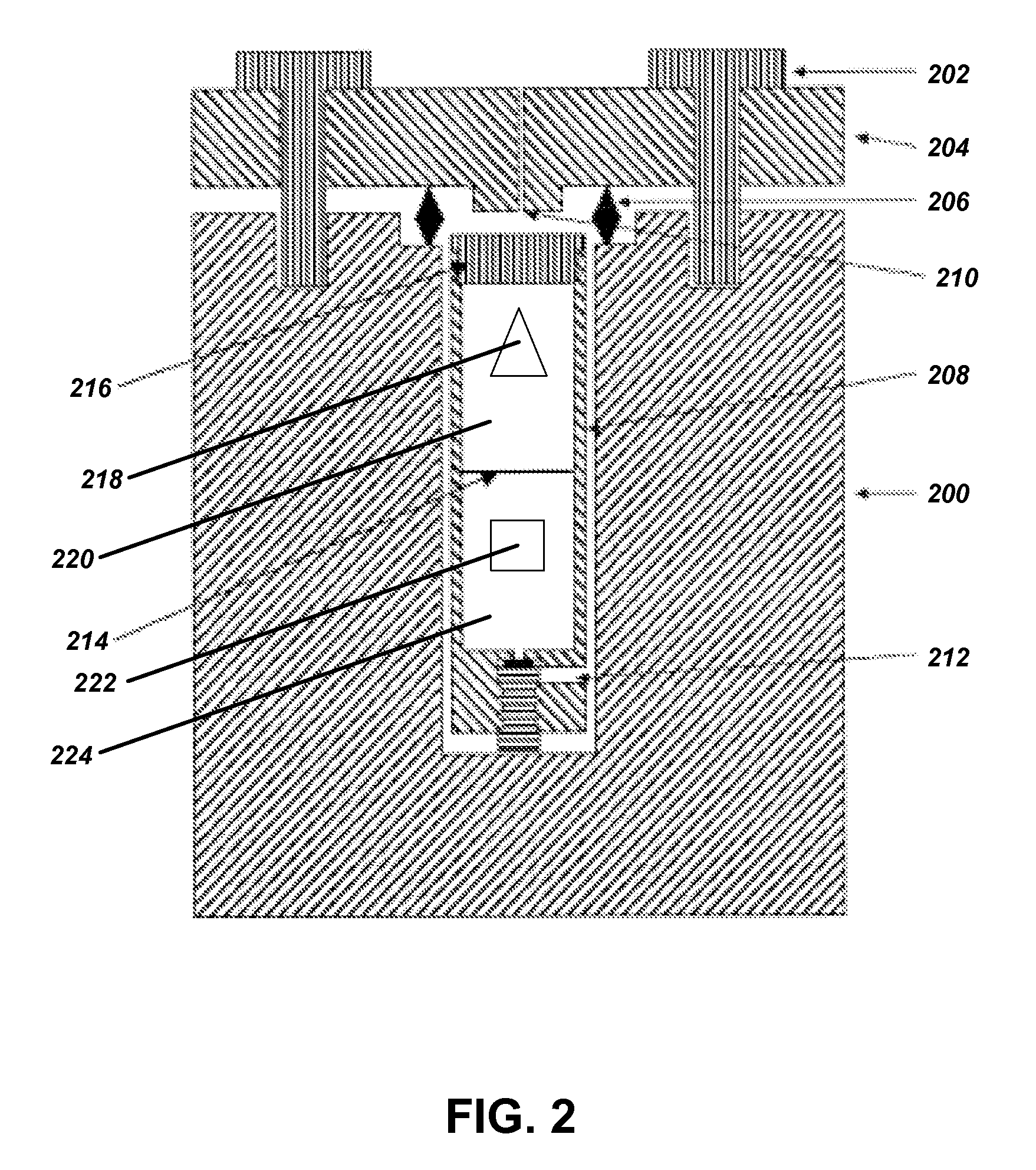OPTO-ELECTRONIC AND ELECTRONIC DEVICES USING N-FACE OR M-PLANE GaN SUBSTRATE PREPARED WITH AMMONOTHERMAL GROWTH
a technology of ammonothermal growth and substrate, which is applied in the direction of polycrystalline material growth, crystal growth process, chemically reactive gas growth, etc., can solve the problems of high gate leakage, limited hole concentration of ga-polar (ga-face) film, and limited use of ga-polar film. , to achieve the effect of improving performance, processing and further growth, and high gate leakag
- Summary
- Abstract
- Description
- Claims
- Application Information
AI Technical Summary
Benefits of technology
Problems solved by technology
Method used
Image
Examples
example 1
Growth of Smooth N-polar (N-Face) GaN using Metallic Ga in Ammonothermal Method
[0066] A large surface area, about 3 cm×4 cm, of a GaN seed crystal, a small surface area about 5 mm×5 mm, of some GaN seed crystals, 40 g of Ga metal, NaNH2 (1 mol % to ammonia), NaI (0.05 mol % to ammonia), 1.0 g of In metal, and 114.3 g of anhydrous liquid ammonia were loaded into the internal chamber. After transporting the internal chamber 208 into the autoclave 200 of which the inner diameter is about 5 cm, the autoclave 200 was heated at 625° C. (top region 220) and 675° C. (bottom region 224). The resulting maximum pressure was 31505 psi (2.2 kbar). The autoclave 200 was maintained at this high temperature for 1 day and the ammonia was released after 1 day. The resulting GaN crystal grown in the autoclave 200 according to the method of the present invention is shown in FIGS. 6(a) and 6(b). FIG. 6(a) shows the N-polar (N-face) surface and FIG. 6(b) shows the Ga-polar (Ga-face) surface. The thickne...
example 2
Growth of Smooth N-Polar (N-Face) GaN using Polycrystalline GaN in Ammonothermal Method
[0068] GaN seed crystals in size of about 5 mm×5 mm, about 120 g of polycrystalline GaN, NaNH2 (3 mol % to ammonia), and 101.3 g of anhydrous liquid ammonia were loaded into the internal chamber. After transporting the internal chamber 208 into the autoclave 200 of which the inner diameter is about 5 cm, the autoclave 200 was heated at 550° C. (top region 220) and 675° C. (bottom region 224). The resulting maximum pressure was 27686 psi (1.9 kbar). The autoclave 200 was maintained at this high temperature for 10 days and the ammonia was released after 10 days. About 2.5-2.6 microns of GaN films were grown on a seed crystal. Scanning electron microscope images of the resulting GaN crystal are shown in FIGS. 7(a) and 7(b). FIG. 7(a) shows the N-face and FIG. 7(b) shows the Ga-face. Similar to Example 1, the N-polar (N-face) surface was smoother than the Ga-polar (Ga-face). The N-face shown in FIG. ...
example 3
Growth of Smooth M-Plane GaN using Polycrystalline GaN in Ammonothermal Method
[0069] M-plane GaN seed crystals in size of about 3 mm×3 mm, about 100 g of polycrystalline GaN, NaNH2 (3.8 mol % to ammonia), and 101.5 g of anhydrous liquid ammonia were loaded into the internal chamber. After transporting the internal chamber 208 into the autoclave 200 of which the inner diameter is about 5 cm, the autoclave 200 was heated at 510° C. (top region 220) and 700° C. (bottom region 224). The resulting maximum pressure was 27986 psi (1.9 kbar). The autoclave 200 was maintained at this high temperature for 83 days and the ammonia was released after 83 days. Smooth M-plane GaN was grown on the M-plane GaN seed. FIG. 7C shows a photograph of the grown M-plane GaN.
PUM
 Login to View More
Login to View More Abstract
Description
Claims
Application Information
 Login to View More
Login to View More - R&D
- Intellectual Property
- Life Sciences
- Materials
- Tech Scout
- Unparalleled Data Quality
- Higher Quality Content
- 60% Fewer Hallucinations
Browse by: Latest US Patents, China's latest patents, Technical Efficacy Thesaurus, Application Domain, Technology Topic, Popular Technical Reports.
© 2025 PatSnap. All rights reserved.Legal|Privacy policy|Modern Slavery Act Transparency Statement|Sitemap|About US| Contact US: help@patsnap.com



